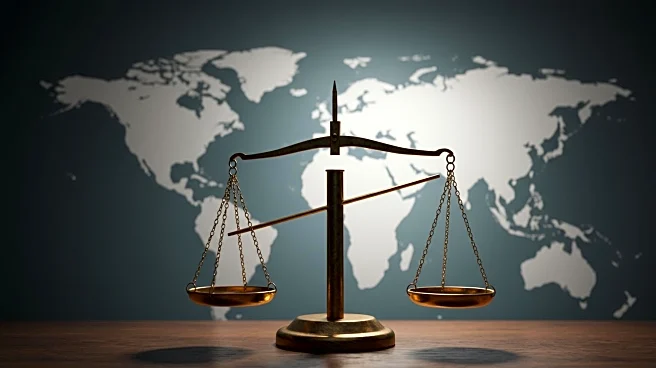What's Happening?
The Israeli government has faced scrutiny for retracting several high-profile claims regarding events in Gaza. These claims, initially accepted and widely circulated, were later found to lack substantiated evidence. Notable reversals include allegations of Hamas stealing UN aid, false reports of decapitated babies, and claims of Al-Shifa Hospital being used as a Hamas command center. The Israeli government has quietly acknowledged errors in these assertions, leading to questions about the reliability of wartime narratives and the credibility assigned to different voices.
Why It's Important?
The reversals highlight the challenges in verifying wartime narratives and the impact of geopolitical biases on media coverage. These developments can influence international perceptions and policy decisions regarding the Israeli-Palestinian conflict. The credibility of Israeli claims affects diplomatic relations and humanitarian efforts in the region. The scrutiny may lead to increased demands for transparency and accountability from governments and media outlets, potentially altering how future conflicts are reported and understood.
What's Next?
The Israeli government may face pressure to improve its communication strategies and provide more transparent evidence for its claims. International organizations and media outlets might increase efforts to independently verify information from conflict zones. This could lead to changes in how wartime narratives are constructed and disseminated, potentially affecting public opinion and policy decisions globally.
Beyond the Headlines
The situation underscores the ethical responsibility of governments and media to ensure accurate reporting, especially in conflict zones. It raises questions about the role of media in shaping public perception and the potential consequences of misinformation. The reversals may prompt discussions on the need for more rigorous standards in wartime journalism and the importance of critical analysis in assessing official statements.









